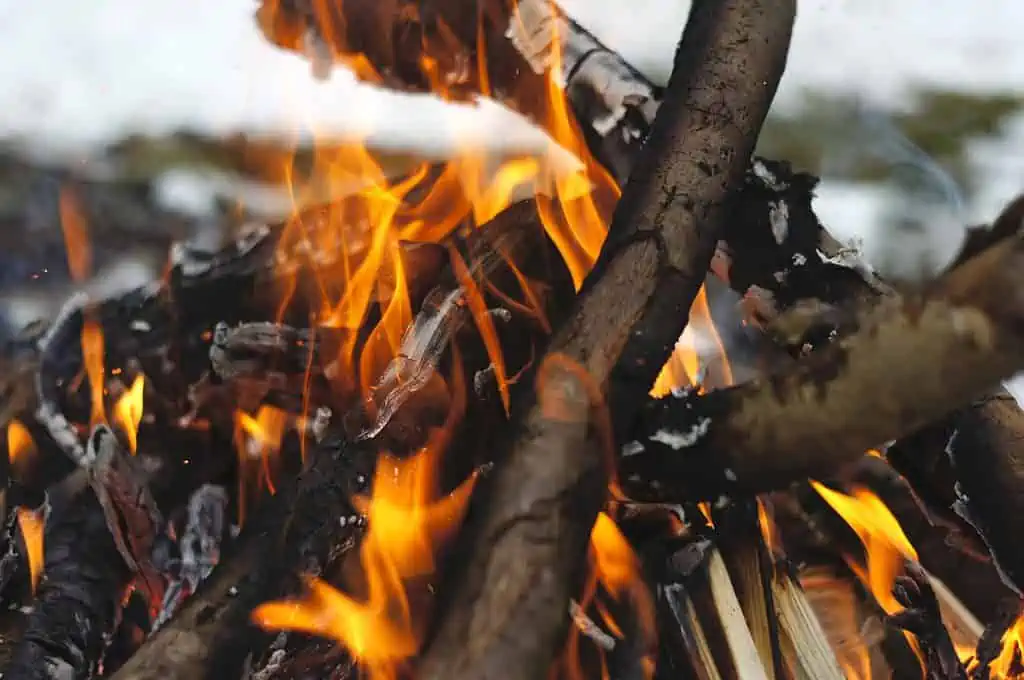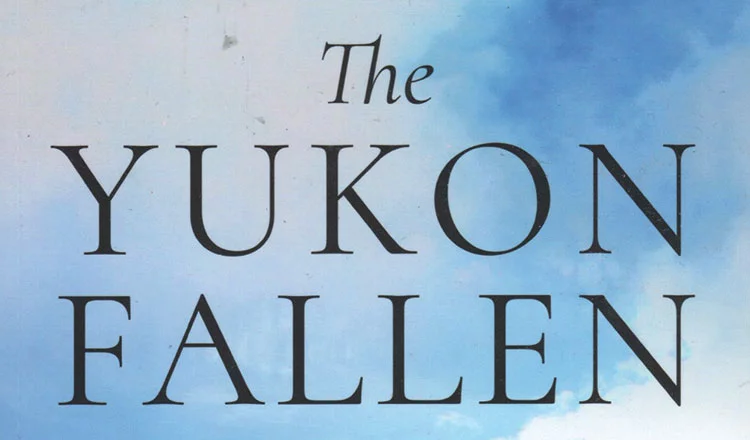Hurlburt Enterprises is a well-known Yukon supplier of bug-killed firewood. I’ve been buying my woodstove firewood from them for years. Recently, Bob (like myself, an Ontario transplant) handed me a small package of 24 small cubes of fire starter from Hurlburt Enterprises. I have seen many fire starter cubes on the market and I stay away from them because of the bad chemical smell they disperse when lit. Willing to try anything though, the next morning I put wood in the stove, set the Hurlburt fire starter under it and struck a match. Within seconds there was a six-inch flame. After a minute, the wood ignited.
This seemed too good to be true, so I cleared out a spot behind the garage, got some small twigs and made a little eight-inch teepee of them. I placed split wood against the teepee, a fire starter below it and struck a match to it. Again, a six-inch flame rose up and, within a minute, I had a small campfire.The objective of this was to see if there was any chemical smell. The fire starter passed the test. The small cubes are made of certified wood wool and paraffin wax, wound together in inch-long cubes. A $5 package contains 24 cubes. I immediately saw the advantage of them for camping expeditions, especially when the weather is damp, and for getting the backyard fire pit going quickly.
The next day, I went to Hurlburt (located on Burns Road, no pun intended) and bought six packs. I divided them between emergency survival containers, my camping trailer, the basement (for the woodstove) and a camping pack. Of course, in a pinch, nature also provides fire starter. Cattails are a good emergency fire starter. The fresh young stalks are also a natural food source that tastes much like celery. The lint from your clothes dryer is also a fire starter, though I don’t recommend using it in your house woodstove. Always carry a lighter into the outdoors. That way, in an emergency, if you need an outdoor fire, look for the dry needles of a cedar tree. They will certainly help get a fire going.
One of the best books I have in my library is published by Outdoor Life and written by Tim MacWelch. It encompasses 221 primitive and wilderness survival skills. I would strongly recommend it for any group that teaches outdoor skills. This is a great book for the family that really wants to know more about the outdoors, how to survive, what plants you can eat and what plants not to eat. There is also a section on building a fire pit and wilderness oven. My own tip for this endeavour is to be careful with the stones you use, especially if they’re shell rock. Shell rock, created under pressure over thousands of years, can explode when heated to excess.
Saying of the week: Last December I turned 86 years, so I leave you with this: In every senior’s body is a youngster saying “what the hell happened?”
Amen to that, brother!




